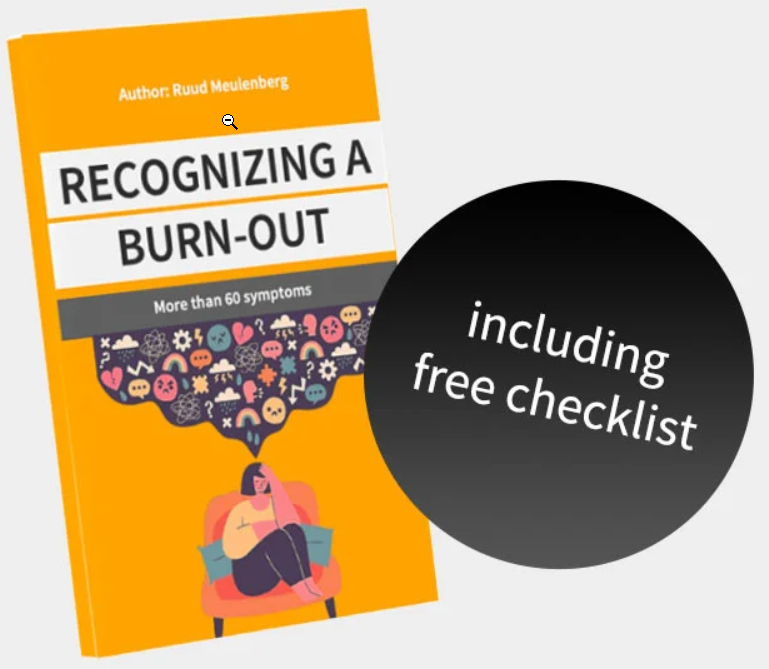Stress is a universal phenomenon affecting individuals across ages, genders, and socio-economic backgrounds. It’s an unavoidable part of life that has become such a dominant feature of our society it’s sometimes easy to forget how difficult it can be to manage mentally.
Stress can be defined as prolonged arousal of the body’s stress response in which a person’s sympathetic nervous system [1] is activated, resulting in high blood pressure, rapid heart rate, and dilation of blood vessels. It is essential to have it detected because it can lead to stress-related diseases and mental health problems but it can be managed if people understand how it works, how to cope with it, and what causes it.
What is Mental Health?
Mental health is a condition of overall well-being where an individual’s thoughts, emotions, and behaviors are in balance. Every person possesses mental health, which can vary between positive and challenging states. Various factors, such as genetic predisposition, personality, belief systems, age, employment status, disability, or exposure to trauma, can influence mental health.
Choose the help that suits you.
Our dedicated team of experts is here to guide and support you in the most difficult times of your life.
How Does Stress Affect Mental Health?
Stress plays a crucial role in mental well-being, and it can have both positive and negative effects. On the downside, it often contributes to various mental health issues, triggering episodes of depression characterized by persistent low mood and diminished interest in once-enjoyable activities. This can result in difficulty mentally disconnecting, leading to insomnia and physical challenges.
However, not all stress is harmful. On a positive note, stress can contribute favorably to mental health. For instance, it stimulates the release of endorphins, chemicals from nerves that induce a sense of well-being after successfully overcoming pressure or challenges. Examples include receiving a job offer, winning a sports game, acing an exam, or hosting a successful webinar.
Symptoms of Poor Mental Health
Here are some of the main symptoms of poor mental health which can range from the most extreme to less troublesome.
Mood Swings
Another common symptom associated with poor mental health is mood swings. Individuals may experience sudden and intense shifts in their emotional state, making it challenging to regulate feelings and reactions. These mood swings can range from periods of extreme irritability to moments of deep sadness, further impacting overall well-being.
Feeling “Fed Up”
People under stress may not find life as fun and amusing as they used to. They may find it difficult to get out of bed in the morning or not care enough to do anything. Having a tired, dull attitude towards things is something that almost everyone has experienced at some point in their lives.
Trouble Sleeping
Individuals under a lot of stress will tend to either sleep more or less than usual. Lack of sleep is known to cause a lack of energy, making an individual tired and depressed, which may in turn lead to lack of proper self-care.
Restlessness
This symptom can be one of the most common, as it happens to many people every day. It can make it difficult to sit still or make you feel like you need to move. It can be accompanied by a ‘buzzing’ sensation in the head or an uncomfortable feeling in your chest.
Loss of motivation
The lack of energy that comes with poor mental health can cause people to lose motivation. They may no longer feel like doing anything at all, even the things they have always enjoyed doing, and this can make them very unhappy and dejected. The low mood period may make you feel this way when this doesn’t lift within a very short period of time, may make you lose interest in your social life and hobbies that once felt fulfilling.

Change in Eating Habits
People under a lot of distress are less likely to eat healthily, or they may become pickier about what they eat and how much they eat. This can lead to weight loss or gain.
Engaging in Substance Use
Those suffering from poor mental health will often feel like they need to do something to make them feel better, like using drugs or alcohol. It can be an effort to ‘self-medicate’ or a way for them to try and get rid of these feelings that make them so unhappy.
Suicidal thoughts or Feelings
Suffering from a low mood can make people feel like they are under a dark cloud that they can’t escape. They may feel helpless and hopeless, and their sadness may be so extreme that they don’t feel like carrying on with their lives. Having thoughts of harming themselves is not uncommon in the face of this level of distress. They may feel their loved ones would be better off without them, so they may even wonder if it would be a ‘good thing’ if they were dead.
Importance of Taking Care of Your Mental Health
Maintaining a positive mental attitude is crucial for overall well-being. When discontent with life, it becomes challenging to sustain a positive outlook, making individuals vulnerable to frequent health issues and eventual burnout.
A healthy mental state not only influences personal happiness but also positively affects various aspects of life, fostering motivation and contributing to improved performance, enhanced work productivity, and elevated income levels. Moreover, it enhances overall quality of life and emotional well-being.
Tips to Improve Mental Health
Learn to Manage Stress
Many people find it hard to cope with the daily stresses in their lives. They often feel they have no control over them, leading to depression or anxiety. But the truth is that it is possible to learn how to manage even the biggest of life’s problems by learning how to identify your triggers, understand why they are there, and then take effective action when they occur so you can either avoid them altogether or learn to deal with them effectively.
Be Positive
A cheerful outlook comes from knowing you have control over your life. When you are in a bad mood, you are less likely to take action to improve things. But when you have a positive outlook and know that things can be more positive than they have been before, it increases the likelihood of improving.
Get Professional Help
Many people do not realize that professional help is available to them. There are many kinds of treatment options, help with mental health isn’t just for those who are very mentally ill. It is also available to those who have moderate symptoms. Contact a professional such as a stress coach and see if they can help you with your mental health concerns.

Download our
free e-book
Recognizing a burnout
(more than 60 symptoms)
Connect with Others
Building and maintaining connections with others holds significant benefits for both mental and physical well-being. Cultivating strong relationships with family and friends provides a sense of love, alleviating stress and fostering feelings of importance and value, thereby boosting self-esteem. These positive social connections contribute significantly to an improved mental outlook and overall well-being.
Avoid Overworking Yourself
When you are mentally exhausted, you often feel your brain is not functioning properly, which can cause many problems. It can lead to anxiety and depression, worsening your mental health. So, take a break from work and do something else to relax.
Encourage Yourself
Often when you are feeling depressed or anxious, you can tell yourself that it will pass and that you will get better. But this kind of thinking may not necessarily be helpful in the long run. The truth is that a bad mental health condition will not go away by itself. It needs to be treated, and then you must learn how to manage your future episodes. So, encourage yourself to get help rather than telling yourself that everything is fine.
Things Not To Do if You Have Poor Mental Health
- Don’t Isolate Yourself: If you are feeling depressed, it is tempting to avoid contact with others for fear of being rejected or ridiculed. But this is unhealthy as it only makes you feel worse about yourself. Make sure you surround yourself with positive people and try to make new friends if necessary.
- Don’t Play the Blame Game: When facing challenges in mental health, it is easy to start blaming yourself. You may think that how you feel is your fault, which it isn’t. You may also start thinking that it wouldn’t happen if you weren’t so weak or had done something differently. However, it’s crucial to recognize these as excuses that do not provide solutions but rather worsen the existing problems.
- Don’t use Drugs or Alcohol: When you are feeling depressed or anxious, it can be tempting to try and feel better by using drugs or alcohol. It can be a quick fix that alleviates the immediate symptoms but only worsens them in the long run.
Where Can You Get Help with Mental Health
Numerous resources are available to offer support. Openly discussing your feelings and seeking advice from friends or family can be a valuable first step. Additionally, consulting professionals such as coaches, psychologists, or psychiatrists can help identify the root causes of your challenges and guide you towards effective solutions.
Conclusion
Understanding the intricate relationship between stress and mental health is crucial in navigating life’s challenges. Stress, a widespread phenomenon in our society, can both negatively impact mental well-being, contributing to issues like depression, and, surprisingly, positively affect it by triggering the release of endorphins during successful endeavors.
Recognizing symptoms of poor mental health, ranging from mood swings to changes in eating habits, emphasizes the importance of proactive self-care. Taking steps like managing stress, fostering positive connections, and seeking professional help can significantly improve mental health. Avoiding harmful behaviors such as isolation or substance use and embracing positive habits, individuals can cultivate resilience and enhance their overall mental well-being.
It’s essential to debunk self-blame, seek help, and embrace effective strategies to foster a healthy mental state. Through awareness, support, and proactive measures, one can navigate the challenges of mental health, fostering a positive outlook and sustainable well-being.
Stress & burnout coaching; for 100% recovery!
Reducing stress and recovering from burnout is simply incredibly difficult. The coaches at Meulenberg Training & Coaching understand exactly what you are going through and know how tough it can be. They have often experienced it themselves! With their years of experience and expertise, they are ready to help you step by step toward a full recovery. The results of our one-on-one coaching and absenteeism training will benefit you for a lifetime!
FAQ
References
- Wikipedia.org – Sympathetic nervous system – found on 12/08/2024
Link to the page on wikipedia.org






